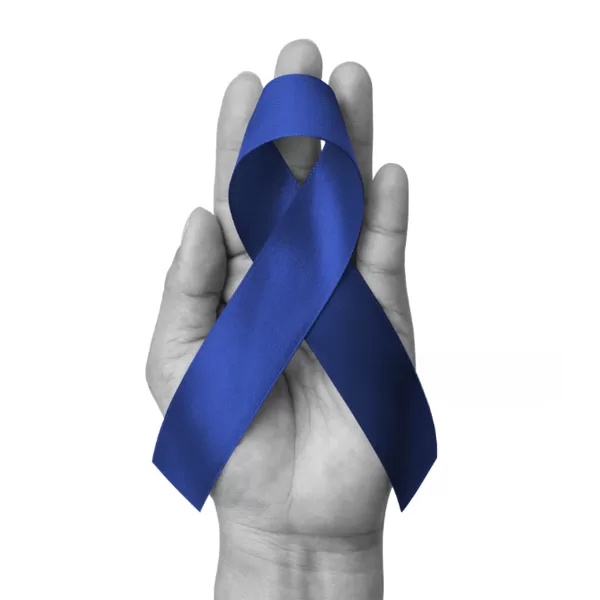Colorectal cancer is the third most common cancer worldwide, and the second leading cause of cancer-related deaths. It’s important to be aware of colorectal cancer and its risk. Screening can help you stay on top of your health and combat early signs of cancer.
What is Colorectal Cancer?
Colorectal cancer is also called colon cancer. It’s a cancer that affects the large intestine (colon) or rectum and starts as an abnormal growth known as a polyp. Not all polyps become cancerous, and they can often be removed before they become so.
Who is at Risk?
The risk of colorectal cancer increases with age, and you are considered at higher risk starting at the age of 45. Risk is also increased by:
- Changes in bowel habits
- A family history of colorectal cancer or certain genetic conditions such as Lynch Syndrome
- Personal history of colorectal cancer or certain types of polyps
- Eating too much processed meat and too few fruits and vegetables
- Not being physically active
- Smoking
- Drinking Heavily
As with many chronic diseases, you can lower your risk factors by exercising and eating a healthy diet. If you smoke, there are State resources to help you quit, or talk to your doctor about a cessation program. Keep alcohol consumption reasonable.
How is Colon Cancer Detected?
Colon cancer generally does not produce symptoms until it is fairly advanced. Symptoms include:
- Changes in bowel habits
- Narrowing of stool
- Blood in stool
- Unexplained weight loss
- Fatigue
- Abdominal pain
- Anemia
By the time symptoms have developed, however, the cancer is at an advanced stage and hard to treat.
People 45 and over should get regular screening for colon cancer. People with certain risk factors should start screening earlier. For low-risk individuals, a stool test can be used. This means you collect a stool sample at home and send it to the lab. Higher-risk individuals may go straight to a colonoscopy, but a flexible sigmoidoscopy is more common. Abnormal results are followed up with a colonoscopy, during which any polyps can be removed. You should talk to a doctor about the right screening program for you.
For more information about how to improve your health, browse our other topics on healthysd.gov.

